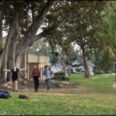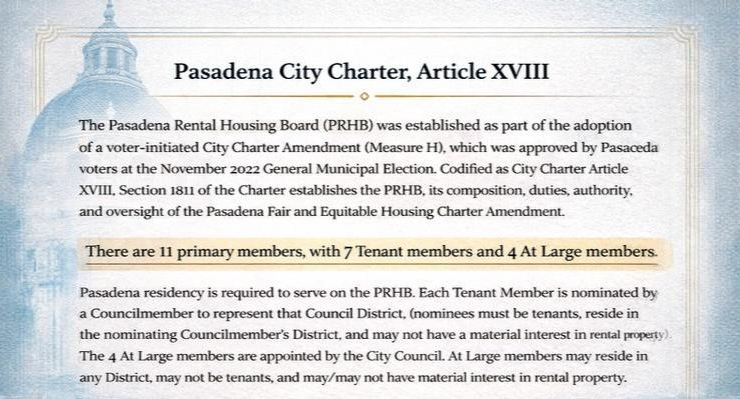
Los Angeles County Assessor Jeff Prang presented detailed information about property tax relief programs available to Eaton Fire victims at Monday’s Pasadena City Council meeting. The programs aim to help affected property owners maintain their tax base and receive lower property tax bills until they rebuild their homes.
“If your home is destroyed, land is worth 50% of the value, we will zero out the value on the improvements. You’ll get a lower tax bill until you begin to rebuild your home,” Prang explained in his presentation to the council.
Prang highlighted the “Misfortune and Calamity” tax relief program as the primary resource for fire victims. To qualify, property damage must exceed $10,000 (including smoke damage) and claims must be filed within 12 months of the fire date, though Prang mentioned he is sponsoring legislation to extend this period to 24 months.
The assessor addressed a significant challenge with the January 1st lien date for assessments, explaining that under normal rules, properties losing value from the January 7th fires wouldn’t be reassessed until the following year. He noted he is seeking legislation to allow decline in value calculations to be applied as of the January 1st lien date for fire-damaged properties.
During his presentation, Prang also discussed confusion regarding rebuilding standards, particularly concerning the difference between cities allowing expedited permits for rebuilding up to 110% of the previous structure size versus the assessor’s standard related to value. The source document indicates that the 120% is based on value to account for inflation and rebuilding costs, not size.
“The standard Misfortune and Calamity provision allows rebuilding to a ‘substantial equivalent of the size and use without reassessment’, restoring the previous property tax assessment,” Prang noted, adding that building slightly larger than the original structure could result in reassessment of the additional square footage.
A second program discussed was the “decline in value” option for properties not physically damaged but experiencing market value drops due to the disaster. This allows tax bases to be lowered if economic values fall below assessed values, including for land where buildings were destroyed.
Prang highlighted issues with property ownership records during his presentation, noting that some residents who inherited properties never updated the deed, which could prevent them from accessing tax relief programs.
“If your name is not on the deed, you don’t own the property. Even if you’ve lived there for 20 years, you may be the functional caretaker of it, but you don’t have authority to take advantage of property tax relief programs,” he said.
Occupants are given six months to correct deed issues, after which they could face up to eight years in back taxes. Prang mentioned legislation is being pursued with Senator Sasha Perez to extend this correction period to three years.
Councilmember Jones asked if there was a calculator to estimate future taxes and about understanding potential tax implications for new construction like Accessory Dwelling Units (ADUs). According to the source document, Jerry House, Director of Assessor Operations, explained they deal with value added to the property, not necessarily the cost, as something costly might not add equivalent market value.
Prang noted that Governor Newsom has extended the deadline to pay property taxes until April 2026 for those in identified zip codes affected by the fire.
The assessor promoted two valuable online services: the “homeowner alert” service, which provides email notification within 48 hours of any recorded deed changes to help prevent fraud, and the “assessor’s e-service account” for online management of property information. He emphasized the importance of updating mailing addresses for displaced residents to receive their tax bills.
Before concluding, Prang announced a community seminar on fire relief to be held in Duarte on Saturday at 9 a.m. with partner agencies to answer questions from affected residents.

















